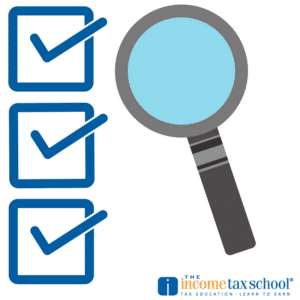The IRS takes due-diligence requirements very seriously. In fact, in order to prepare for the upcoming season this year, they sent letters to paid tax preparers whom they suspected were noncompliant in meeting their Earned Income Tax Credit (EITC) due-diligence requirements.
season this year, they sent letters to paid tax preparers whom they suspected were noncompliant in meeting their Earned Income Tax Credit (EITC) due-diligence requirements.
According to The Journal of Accountancy, the IRS estimates that between 22% and 26% of all EITC claims contain some sort of mistake, costing the federal government between $13.3 billion and $15.6 billion in tax revenue in 2013.
Because of this, due-diligence requirements have become more strict.
“Due Diligence is more than a check mark on a form or clicking through tax preparation software.” – IRS Publication 4687
Have a Set of Written Policies
The best way to ensure you and everyone in your office is following IRS due-diligence requirements is to have a set of written procedures that everyone is required to follow. It should also be a big part of your training for new tax preparers.
Most Common Errors
The three most common errors made in EITC claims are:
- Claiming a child who does not meet the credit’s age, relationship, or residency requirements.
- Filing as single or head of household even though the taxpayer is married.
- Reporting income or expenses incorrectly.
Errors happen when tax preparers don’t do a thorough job conducting interviews, fail to ask the right questions, haven’t been trained properly, and/or don’t have standard procedures written down.
The Penalties
To er is human but know that the penalties are severe. Failing to meet due-diligence requirements in 2017 is $510 per credit, per return. That means that if you fail to meet due diligence for all three tax credits your penalty would be $1,530 per return!
Due-Diligence Resources
Want to make sure you’re doing your Due Diligence? Here are some great resources to check out.
IRS EITC Due-Diligence website
